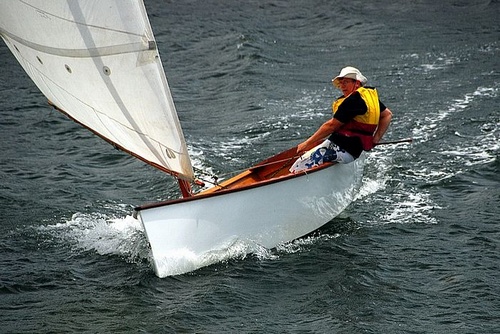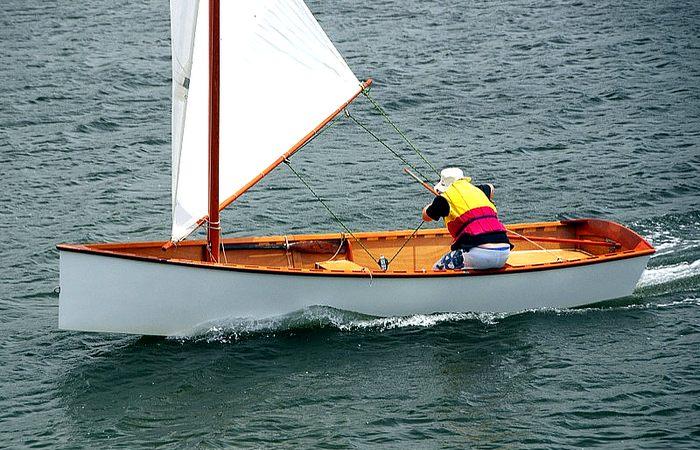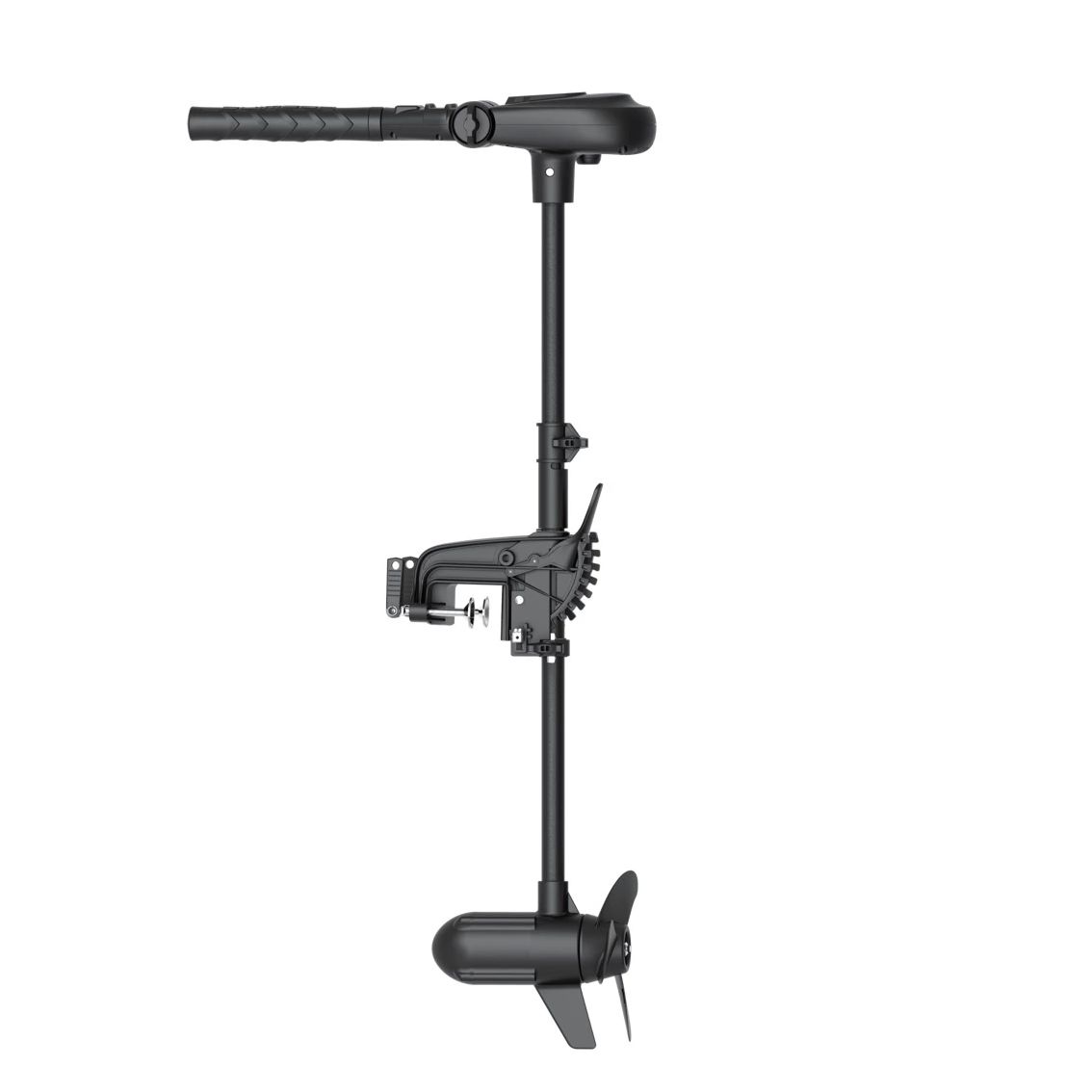
























Product Description
The Goat Island skiff is a simple lightweight sailing boat. Designed by Michael Storer, it is a versatile boat that rows well, sails like a rocket and can take a small outboard motor. The skiff's light weight makes it easy to move around on shore and gives it modern sailing performance.
One of the first things you notice looking at the boat is the lack of timber framing: the interior is very clean and open. Less timber saves weight and money and, with fewer parts, the boat builds more quickly than similar boats.
The balanced lug sail is highly efficient, quick to rig and unrig. The sail area is quite big so with the hull's light weight it has a large power to weight ratio for good fine-weather performance. When the weather blows up it can be reefed very simply for good control. It also makes this boat relatively cheap to get on the water: having a single big sail is a lot cheaper than having several smaller ones.
If you are used to sailing regular modern dinghies like the Taser, Laser and Sabre, you will find the Goat has much of the feel of these boats: lively and responsive. It can sail in modern company without being completely outclassed, however it has a much greater carrying capacity. It sails very nicely with four adults, thanks to the easily driven hull form.
The Goat Island skiff is light enough to be cartopped but it is bulky so we recommend carrying it on a lightweight trailer. She fits nicely in a standard 5ft box trailer with an extended towing arm at the front.
The forward and aft buoyancy tanks are designed for use as seats when rowing. When sailing, the boat will perform best with crew weight concentrated around the middle thwart.
Sailing
This sailing skiff will sail much the same as most boats its size, but there are a few peculiarities that come with the flat bottom.
As with almost all boats the skiff will sail fastest if sailed level – with little or no heel – the exception is in very light winds when you are struggling to get up any speed at all the boat can be heeled over to 20°. This reduces the wetted surface by around 25%. As soon as the boat has achieved any sort of consistent speed it should be brought upright.
When the water is very choppy the boat may slam badly if sailed upright. A small amount of heel will smooth its movement considerably. The minimum amount of heel that stops the worst of the slamming should be adopted.
The final difference with many other boats is because there is no jib. This means that the mainsail boom should not be pulled in tighter than 10 degrees.
Rowing
Nine foot long oars provide the best rowing efficiency and they store neatly in the bottom of the boat. A rowing skiff based on the Goat Island skiff may be more suitable for rowing.
Motoring
The Goat Island skiff is set up to take a small motor (up to 4 horsepower). Even 2 HP will push her along at a good speed. More powerful motors are not very useful because the hull is not the right shape to go faster – it will stand up on its stern and start pounding in waves.
Kit
The kit includes:
- Pre-cut marine plywood panels with pre-cut joints
- Solid wood for gunwales, inwales, knees, spacers and frames
- Epoxy resin and activator
- Epoxy fillers
- Copper ties
- Woven glass fabric
- Woven glass tape
- Douglas Fir mast staves (for hollow wooden mast)
- Blanks for boom and yard (spar grade Douglas Fir)
- Mast step
- Staves for rudder and daggerboard (Paulownia and Red Cedar)
- Daggerboard case
- Tiller blank
- Blocks and cleats
- Comprehensive building manual
- Free technical support from a competent builder
The kit does not include the sail or warp although we can supply them.
Plywood
This option contains only the plywood components pre-cut to the correct size with pre-cut joints plus the building manual.
There is a lot of solid wood required to build this boat, for the mast, foils, gunwales, inwales, knees, spacers and frames. This is not included with the plywood-only option but is included in the full kit.
Plans
The 85-page A4 plans for the Goat Island skiff are more like a book or a boatbuilding course. They contain detailed information on each building step, including how to join the plywood, mark the shapes of the panels and use the epoxy.
PDF Plans
An electronic version of the plans in PDF format that can be viewed using Adobe Reader. After credit card authorisation the file will be sent to the email address put on the order form.





